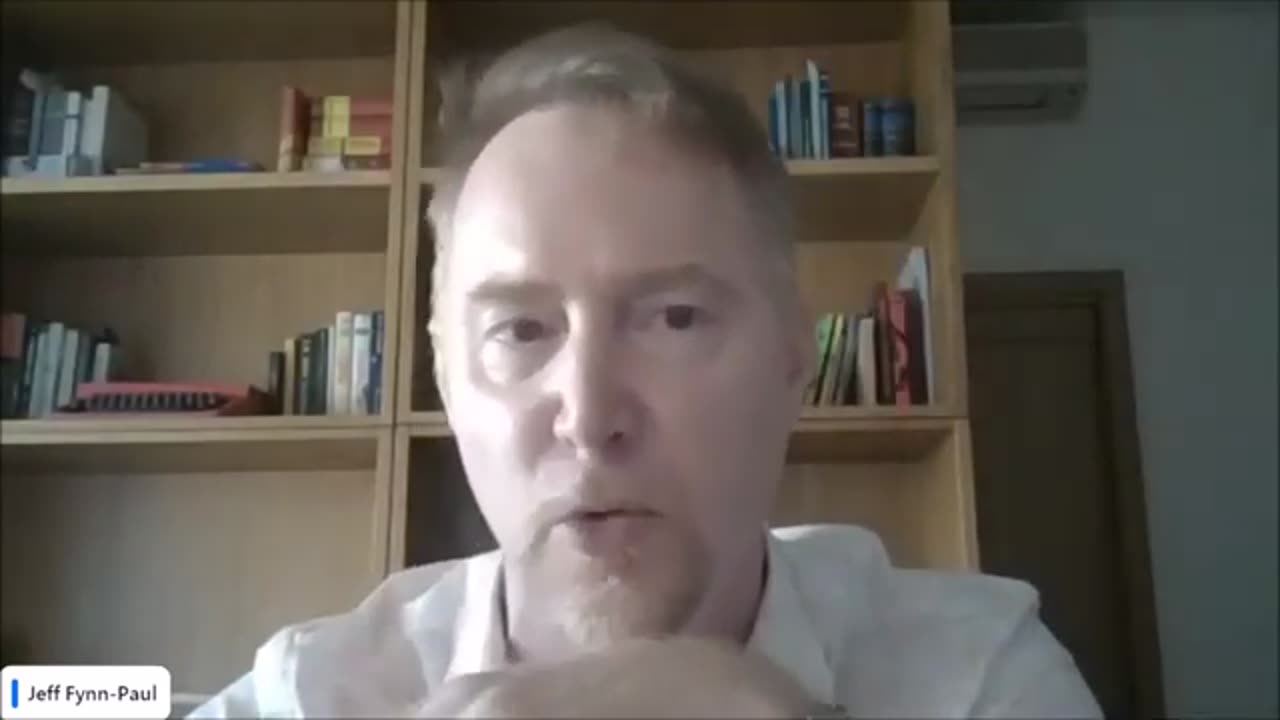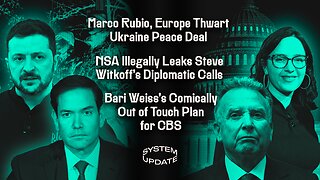Premium Only Content

Not Stolen - The Myth of New World Genocide - Jeff Fynn-Paul
Jeff Fynn-Paul is a Lecturer in History at Universiteit Leiden. His research interests include the economic and social history of Europe and the Mediterranean from 1300 to the present, and urban institutions, state formation, public debt, class and slavery in relation to economic growth.
The myth of New World genocide is a radical take on European colonialism based on systematic abuse and suppression of the historical record for the purpose of scoring political points with modern social media audiences.
Genocide scholars imagine that they are helping modern-day victims of “systemic racism” in the United States. But it is arguable that—as many Native leaders have asserted throughout the decades—the genocide scholars’ tale of perpetual victimization does more harm than good to modern Native populations. Such tales encourage Native youth to drop out of mainstream society in despair, rather than participate in it with an aim to self-improvement. But as long as only one side is allowed to air their views of Native history, then the real, potentially lifesaving data about the true causes of modern Native social ills will be submerged—to the detriment of the very people that the Left claims to be defending.
At the global level, it is arguable that instead of helping the victims of past genocides, self-appointed genocide scholars are facilitating the real-world, real-time oppression of tens of millions of people. They do this in part by helping to convince autocratic leaders that the West’s moral posturing is nothing more than hypocrisy of the highest order—just as they always suspected. Autocrats, in turn, broadcast the hyperbole churned out by genocide scholars because its veneer of academic rigour lends it that much more credence as propaganda. According to a post called “The American Genocide of the Indians—Historical Facts and Real Evidence,” posted to the website of the Ministry of Foreign Affairs of the People’s Republic of China:
Peter Burnett, the first governor of California, proposed a war of extermination against Native Americans, triggering rising calls for the extermination of Indians in the state… From 1846 to 1873, the Indian population in California dropped to 30,000 from 150,000. Countless Indians died as a result of the atrocities.
One does not need to look too far to figure out where the Chinese authorities found this story.
For all of these reasons both local and global, it is a moral imperative that historians who specialize in the subfields of early Spanish Colonial history, nineteenth-century American and Canadian history, and other relevant fields robustly challenge writeups that claim “genocide” where no historian saw it before. Specialists must be allowed the freedom to challenge these new interpretations: they must be given this freedom—even actively encouraged—both by the historical establishment at large, and by university administrators.
About History Reclaimed
Our Mission
The abuse of history for political purposes is as old as history itself. In recent years, we have seen campaigns to rewrite the history of several democratic nations in a way that undermines their solidarity as communities, their sense of achievement, even their very legitimacy.
These ‘culture wars’, pursued in the media, in public spaces, in museums, universities, schools, civil services, local government, business corporations and even churches, are particularly virulent in North America, Australasia and the United Kingdom. Activists assert that ‘facing up’ to a past presented as overwhelmingly and permanently shameful and guilt-laden is the way to a better and fairer future. We see no evidence that this is true. On the contrary, tendentious and even blatantly false readings of history are creating or aggravating divisions, resentments, and even violence. We do not take the view that our histories are uniformly praiseworthy—that would be absurd. But we reject as equally absurd the claim that they are essentially shameful.
We agree that history consists of many opinions and many voices. But this does not mean that all opinions are valid, and certainly none should be imposed as a new orthodoxy. We intend to challenge distortions of history, and to provide context, explanation and balance in a debate in which dogmatism is too often preferred to analysis, and condemnation to understanding.
Who We Are
We are an independent group of scholars with a wide range of opinions on many subjects, but with the shared conviction that history requires careful interpretation of complex evidence, and should not be a vehicle for facile propaganda. We have established the History Reclaimed group as a non-profit making company limited by guarantee.
-
 1:03
1:03
We The People - Constitutional Conventions
1 day agoBraindead Robots RCMP - $50,000 in fines for eating. Can't make this stuff up - Nova Scotia de-facto unlawful masquerading government
4514 -
 LIVE
LIVE
SpartakusLIVE
1 hour ago#1 King of Content ARRIVES, The Masses UNDULATE with EXCITEMENT
291 watching -
 1:29:23
1:29:23
Glenn Greenwald
4 hours agoMarco Rubio, Europe Thwart Ukraine Peace Deal; NSA Illegally Leaks Steve Witkoff's Diplomatic Calls; Bari Weiss's Comically Out of Touch Plan for CBS | SYSTEM UPDATE #550
94K38 -
 8:56
8:56
MetatronGaming
3 hours agoSuper Nintendo NA vs PAL
2 -
 3:18:30
3:18:30
Nikko Ortiz
4 hours agoArc Raiders 1st Gameplay... | Rumble LIVE
6.93K1 -
 LIVE
LIVE
Blabs Life
5 hours agoPART 3: Peter Jackson's King Kong: The Official Game of the Movie | Noob Plays
89 watching -
 18:07
18:07
MetatronCore
3 hours agoAmala Ekpunobi is BASED
322 -
 1:01:48
1:01:48
BonginoReport
4 hours agoWaddle & Gobble Receive Presidential Pardons! - Nightly Scroll w/ Hayley Caronia (Ep.185)
92.1K23 -
 53:41
53:41
Katie Miller Pod
2 hours agoMike & Kelly Johnson on Marriage, Family, & Demands of the Job | The Katie Miller Podcast Ep. 16
10.5K10 -
 1:31:04
1:31:04
The Daily Signal
3 hours ago $2.67 earned🚨BREAKING: Judicial CHAOS—$7 Million Somalian Fraud Scandal Thrown Out, Trans Terrorist Released
9.15K5